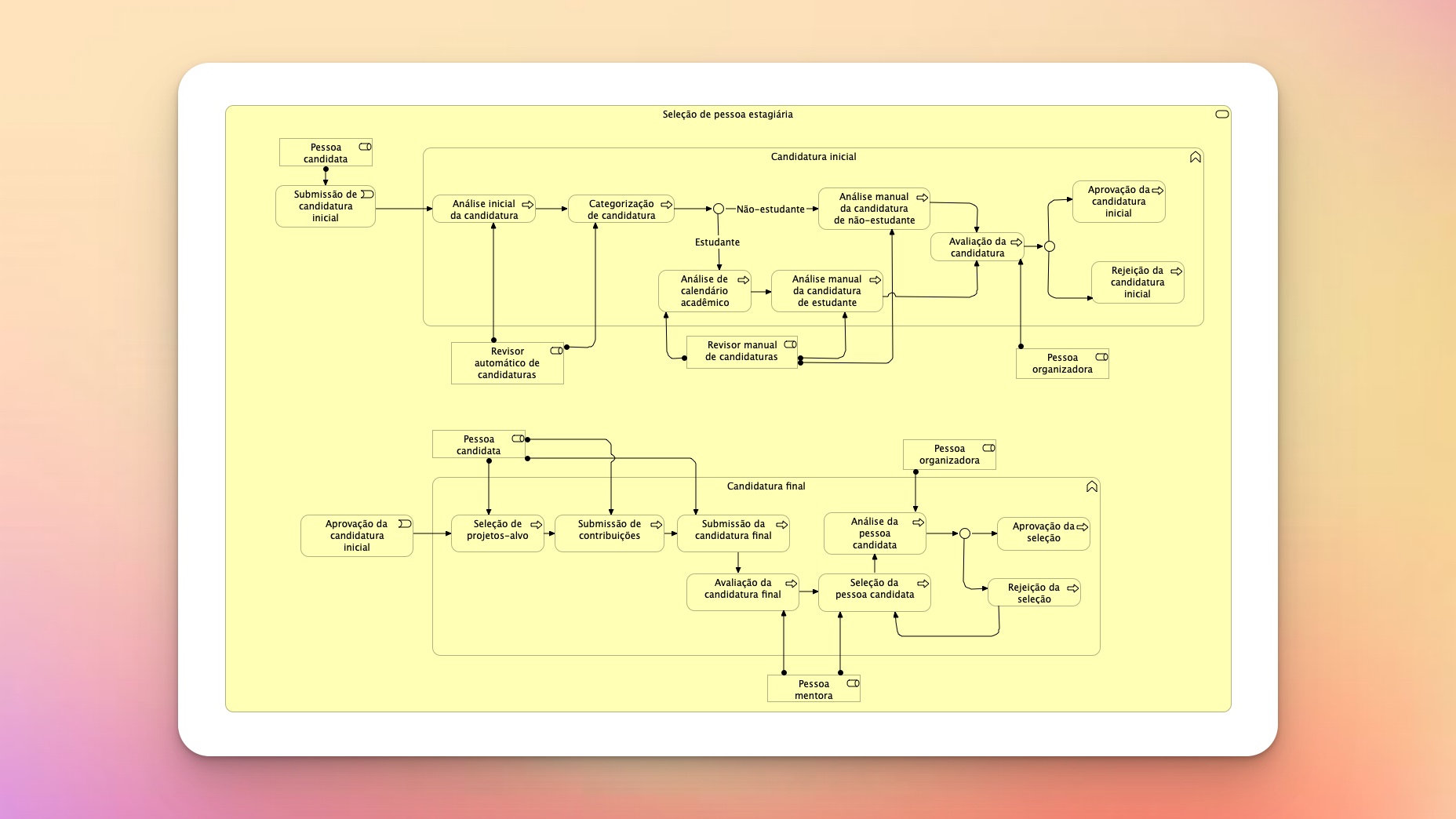Outreachy report #42: February 2023
This month is one of the busiest months of the year. Understandably, it feels like a blur—so much has happened in four weeks:
- We received a record amount of initial applications this cohort (7,000+)
- Interns without extensions from our December 2022 cohort are finishing their internship—we just hosted a final intern chat for them
- 12 new communities signed up for the May 2023 cohort—and two past communities are under review
- I just finished one more semester in university
Academic lessons
I learned new database maintenance techniques that will help us build informational dashboards for all community members this year and a modeling language called ArchiMate. The latter will help me model Outreachy in a way that will make it easy to explain the program structure to prospect sponsors, coordinators, mentors, partners, and staff members.
For example, this is Outreachy from a business perspective. This diagram documents business behavior—what kind of services and process we offer and execute. In this diagram in Brazilian Portuguese, I modeled a simplified version of our initial application process.

Sage and I toyed with the idea of representing Outreachy processes with Business Process Model and Notation (BPMN) in the past, but I found this graphical representation to be quite limiting. ArchiMate is more aligned with systemic representations of organizational architecture—it’s the tool I’ve been looking for. Expect to see it in presentations, sponsor materials, grant reports, and internal handbooks.
December cohort: Adjustments and hopes for the future
This last month of internship was challenging—we had to make some changes to our schedule on the go and that led us to some very stressful situations. One big problem with the December cohort is that the first month is right at the end of the year which makes scheduling activities such as intern chats difficult; we need to review as soon as possible the pacing, the tasks, and the dates for our bi-weekly emails and intern chats this year, before our next December cohort.
Another problem we had this cohort was with mentors communications—I’m noticing an increase in mentors that are slow to respond and submit feedback on their interns. Then, if they do submit feedback and ask for an extension, they are not clear about why they’re requesting it. One improvement we can make is to add a field to every feedback cycle that’s present every time someone requests an extension—a field that explicitly asks the mentor why they’re requesting one. We could offer pre-filled options and add a field for additional comments.
Initial applications
Omotola’s efforts have been so successful we’re on track to double the amount of usual initial applications we received in the last four years. Such an achievement brings its own set of challenges, one of which is dealing with automated essay answers generated by tools like OpenAI’s ChatGPT.
We’re still discussing strategies to deal with this new influx of initial applications, but I worry we’re at the limit of the current initial application format. Recruiting new application reviewers can only do so much; we’re approaching mythical man-month levels of complexity.
I’m not sure if we have the time to change anything for the next December cohort, but I’m considering proposing policy and process changes that may apply to the May 2024 cohort. I plan on having post-mortem sessions one or two weeks after the contribution period opens so we can start discussing pain points and changes to address them.